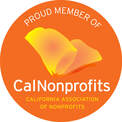 We all love stories about EHP. They are "feel good" stories, stories about EHP's impact on the lives of others. Sometimes it's the smallest thing, a smile or a casserole, but that act of kindness lasts a lifetime. The following story was written by a young journalism student, Iván Valencia-Pérez, a member of the class of 2027 at Eastside College Preparatory School in East Palo Alto. Produced originally for the independent Mosaic Journalism Program for Bay Area high school students, Iván Valencia-Pérez' article was featured in the San Jose Mercury News . East Palo Alto Program Feeds Region’s Hungry Residents Former recipients of Ecumenical Hunger Program come back as volunteers and employees By IVÁN VALENCIA-PÉREZ | Mosaic PUBLISHED: June 23, 2024 at 5:00 p.m. | UPDATED: June 24, 2024 at 3:58 a.m Every month, hundreds of families and individuals in need are welcomed at the Ecumenical Hunger Program in East Palo Alto, a culturally diverse and struggling city at the edge of Silicon Valley, one of the richest regions in America. Ready to help them are employees and volunteers who live in town and once struggled to eat. James Vakameilalo, 34, started volunteering at EHP when he was 12 years old. “When I first started off I was a volunteer because, dude, I come from a big family of nine,” he said. “Just living off of my dad’s salary wasn’t cutting it. There was days where we went hungry.” Even when Vakameilalo was in need, he was never alone. “The kind lady over here, who works in the warehouse, her name is Miss Nevida,” the husky Samoan-Tongan American said. “Every weekend she would make something and send it to my mom.” Vakameilalo remembers leaving for home with a pot of spaghetti cooked by EHP’s former executive director, Nevida Butler.  After fleeing an abusive relationship in St. Louis, Missouri, in 1973 with her three kids, Butler said, she landed in Bakersfield, homeless. Butler eventually made the journey to East Palo Alto. With a friend’s help, she was able to get a roof over her head and a job with the American Red Cross. One day while on the job, Butler was approached by EHP leaders, who offered her a position at EHP. “They said, ‘We want you to come and run the Ecumenical Hunger Program,’ and I said yes,” Butler said. Butler was the program’s executive director for 27 years, 1981 to 2008. “We help families that need help no matter their situation,” she said. Butler has stayed on as an outreach coordinator. “Hunger knows no color and it knows no language.” Today EHP has 30 staff members. Program officials said it served about 1,850 families in May. It gave out 33,789 food boxes last year to 6,819 families and 1,745 individuals. Most of EHP’s food comes from Second Harvest of Silicon Valley, a member organization of Feeding America, a national network of food banks and food distribution programs in the United States. Second Harvest provides rice, beans, fruits, nuts, pasta, canned goods and prepared meats. EHP packs these into food bags for families and individuals who can line up four times a week to receive the food. In addition, they can also receive milk, eggs, meat and bakery items. Second Harvest also has a “food rescue” program that allows EHP to receive goods from grocery outlets like Walmart, Costco and Trader Joe’s. These items include pre-cooked chicken, salmon and pasta. Veronica Camacho, 34, a mother of three young children, has lived in East Palo Alto for 10 years. She has received free food from EHP for nine years. “I come here because not only is it nearby, they also give really good food,” said Camacho, a Mexican immigrant. “Every now and then I go to the other side and pick out some clothes and toys for my boys.” The other side she referred to is the much wealthier city of Palo Alto. Braulio Robinson, 36, drives a delivery truck for EHP. When he was 9, his home in East Palo Alto caught fire, leaving the family homeless for two months. ”With the help of the Salvation Army and also EHP we were able to get food,” he said. Ten years ago, he quit a management job at a Target store to accept a job at EHP. “I think deep down that’s why I stayed here because I knew one time I needed help,” he said, “and to see how someone can open their arms to provide you things that you need, is a great feeling.” Lakesha Roberts, granddaughter of Nevida Butler, started volunteering at EHP in middle school but never saw it as a career opportunity at the time. “I love being able to come and help meet the needs of families that we’re serving,” said Roberts, who is now the program’s associate director. After graduating from the local Eastside College Preparatory School, Roberts went off to Bryn Mawr College in Pennsylvania in 2010, graduating with a bachelor’s degree in mathematics and education. Programs like EHP exist across the country. In 2021, the federal Supplemental Nutrition Assistance Program helped about 41.5 million low-income Americans, according to a study by the non-profit Center on Budget and Policy Priorities. Roberts said the program projects a budget of $4 million for this year. That would be a big drop from $6.4 million in 2023, $7.1 million in 2022 and $8.1 million in 2021, according to the group’s federal tax reports. She said funders simply gave more generously during the height of the COVID pandemic. Even amid prosperity, continuing need keeps Butler busy. “I’m 82 years old and I feel very blessed to have come from where I come from,” she said, “and what I have lived to see what I have seen and I hope when I leave this world that I leave it a better place than what it was.” On June 13, 2024, EHP hosted a get-together for our Board of Directors, Friends of EHP, and the EHP staff. Held at the University Circle outdoor pavilion, our guests were treated to South-of-the Border beverages, a taco bar and a multitude of delectable desserts plus a slide show and music for entertainment. We were pleased to see a good number of board members, Friends and staffers who came to enjoy the party.
EHP hopes to host more in-person and on-site events going forward. Stay tuned for our next event! EHP, a recipient of the 2023 Palo Alto Weekly Holiday Fund, was awarded $10,000 to purchase hams for our Holiday Food boxes. In total, over 650 hams were distributed during the week before Christmas to our families in need. Many thanks to the Palo Alto Weekly News and Online for bringing the gift of food to our neighbors in need this holiday season! If you'd like to view pictures and the story in its entirety, please go to: www.paloaltoonline.com/news/2023/12/17/holiday-fund-a-winter-feast-for-families-in-need?utm_source=express-2023-12-
Holiday Fund: A winter feast for families in needEcumenical Hunger Program brings holiday cheer to low-income households in the neighborhood through its food boxesFacebookTwitterEmailPrintShareby Ashwini Gangal / Contributor Leonora Martinez, 51, calls herself “blessed” despite the misfortune that has riddled her life in recent years. Born and raised in East Palo Alto, where she currently resides, Martinez lost her father in 2014. Two years later, she lost her husband. A year later, her teenage son Austin was involved in a biking accident that robbed him of his speech and movement. The following year, her mother was diagnosed with ovarian cancer and a year later, her 25-year-old daughter died by suicide. After that, the pandemic hit. “When I say life has been crazy, it has been crazy,” Martinez said. “Every year, it’s been one big ordeal after another.” Even so, the word "blessed" came up over four times during a 40-minute Zoom call with this publication. Martinez lives with three of her five children, a daughter-in-law and three grandchildren, two of whom are the kids of her late daughter. “I’m raising them,” she said. “I have pieces of her. That keeps me afloat.” Also keeping her afloat is the timely support of the Ecumenical Hunger Program (EHP), an East Palo Alto-based nonprofit that received a $10,000 grant from Palo Alto Weekly’s 2023 Holiday Fund. The nonprofit was founded back in 1975. Today, its primary service area includes East Palo Alto, Menlo Park and Palo Alto. Sometimes its programs extend to Redwood City and Mountain View. “If it wasn’t for the community of EHP, the community of my church, the community of my kids’ after-school program, there’s no way I could have handled it,” she said. “I would not have been able to make it without pivotal people helping me.” Help from EHP comes primarily in the form of food boxes that contain items like beans, rice, meat eggs, milk and canned vegetables, among other delights like tea, coffee, crackers and pastries. These boxes enable low-income families on a tight budget to prepare decent, wholesome meals, like shepherd’s pie, for instance. “You can use those types of things to get your belly full and get as many meals out of it as possible,” Martinez said. “They do boxes by family size. Usually, their boxes last for about four days, depending on how you make a meal.” The food boxes are especially helpful during the holidays — on Thanksgiving and Christmas — when groceries cost more than usual. “You don’t want your kids to feel some type of way because they don’t have the type of food that other kids have,” Martinez said. “Turkey and ham — those things are expensive. You’d like to celebrate but if you can’t then you’ll eat chicken and rice and beans … then Christmas is just another day. But to be blessed with it (turkey or ham) is huge. It gives you comfort. It’s very caring.” This year at Thanksgiving, Ecumenical Hunger Program distributed food boxes with turkeys to over 1,050 families. The organization expects to exceed this number at Christmas. Lesia Preston, executive director of the nonprofit, told this publication that the grant will be used to purchase hams for their holiday food boxes — a particular favorite because of its long shelf life. “We purchase hams that do not require cooking (only reheating if desired) which is a boon to families who are unhoused or perhaps living in a place without a kitchen. Because this is an expensive item, hams are usually only distributed at Christmastime, but its versatility and longer refrigerator life ensures our families will have food between Christmas and New Year's when EHP is closed,” Preston said. Martinez’s association with EHP actually began in an entirely different context, many years ago. “I volunteered, way back when I was 16. I loved it; I met the then-executive director, Nevida Butler. She was just an amazing spirit,” she said. Then in her mid-20s, Martinez got back in touch with them. “Life hit hard and I remembered the program and went back.” EHP helps families like hers in ways that go beyond food packages; it provides things like furniture, diapers, wipes, clothing and household essentials as well. It also has support groups for people facing mental health issues. This year, the nonprofit is working to ensure low-income teenagers, a neglected cohort, receive holiday gifts. The program is special to Martinez because of how close she feels to it. The staff and volunteers look at her as family and not as a client, she said. “That’s really the essence of EHP,” she added. “It’s not — ‘Hey you’re just a number, hurry up, come get your box.’ You get — ‘Hey how’re you doing? I see the kids are getting bigger.’” Martinez, a former social worker, is now full-time caregiver to her son Austin, who has been wheelchair-bound since his accident in 2017 and who turns 21 next year. Though his speech has improved over the years and he’s cognitively all right, he is still unable to move. “Nobody wants to feel like they’re getting a hand-out or that I’m ‘lesser than’ because I can’t provide for my family,” Martinez said. “EHP is like a village; they care.” When EHP learned that we would have a shortfall of 1000 turkeys for our Holiday Food Program, we put out a 911 alert and asked our community to please donate turkeys for our families in need. Our call was answered as community members and groups dropped off turkeys and cash to EHP. We didn't think we'd make it, but with help from our friends, all of our families enjoyed a wonderful Thanksgiving feast. Today, we would like to share a little bit about two different groups with hearts of gold.
When the Menlo Mamas, a collective of women hailing from Half Moon Bay, Palo Alto, Menlo Park, Redwood City, Portola Valley, San Jose, San Carlos, Los Gatos, Oakland and even Maine, learned of our plight, they quickly organized and collected funds for two "turkey hunts". On their first shopping spree, they procured 155 fresh turkeys, weighing 2033 lbs total, plus four cases of canned vegetables. Then with only one day left before Thanksgiving, EHP was still shy of our goal, but the Mamas again answered our plea and delivered 57 more turkeys before our last distribution, a Herculean feat considering most stores were completely out of turkeys. We are extremely grateful to the Menlo Mamas for their efforts to save Thanksgiving for over 200 local families and for their support throughout the years. After issuing our call to action in November, imagine our surprise and delight to receive a phone call from the Phi Beta Fraternity, Inc., a 109 year international organization comprised of 150,000 college-educated men who focus on improving the global community through dedicated service. The local Theta Lambda Sigma Graduate Chapter of San Jose had chosen EHP for their Thanksgiving 2023 "If I Can Help Feed Someone This Thanksgiving" initiative. It was an honor and a blessing this year, especially as we broke our record of the number of families served and food boxes distributed this Thanksgiving. Thank you so much to everyone who helped make this Thanksgiving memorable!  LaKesha Roberts was recently tagged by Chan Zuckerberg Initiative as a Change-Maker for her work and impact on our community. Following is an excerpt of the full article which can be found here. LaKesha Roberts: Assisting Neighbors in Need with Compassion LaKesha Roberts is the associate director of the Ecumenical Hunger Program (EHP). She began working at the organization as a volunteer and is passionate about serving her community and dedicated employees. For Roberts, working at EHP is more than a job. Its mission is to provide compassionate, dignified and practical assistance to families and individuals experiencing economic and personal hardship. The East Palo Alto, California, organization offers several programs, including emergency food assistance, resources for children, and advocacy. Ecumenical Hunger Program is one of CZI’s Community Fund partners. How It Started My interest in helping others started with my grandmother, Nevida Butler, former director of the Ecumenical Hunger Program and current outreach staff member. This was her life. Everything about her was EHP. Growing up, I was able to see the work she did and the impact it had. When I used to go to the grocery store with her, everybody wanted to stop and thank her for all that she’s done. It always warmed my heart. I could say it’s hereditary, as my mother and current EHP executive director, Lesia Preston, shared the same compassion and service for the community that was passed down to me. I’ve volunteered in the program since my high school days at Eastside College Preparatory School in East Palo Alto, California. To be able to give my time and impact somebody’s life is something that has always moved me. Even in school, I was always willing to help or take time for others. LaKesha Roberts’ passion for serving her community is multi-generational, as both her mother and grandmother are dedicated to the same mission. I remember being at EHP during the holidays one year, and news reporters were interviewing a family about our Christmas program and its impact. A dad and his son were answering questions, and the little boy said he only wanted an iPod for Christmas. I overheard the interview while listening to an iPod and packing gifts and felt terrible. Here’s a kid who really wanted one, and because of the family’s situation, he would never be able to afford it. So I thought, “Can I give him mine?” We ended up having iPods as Christmas gifts, so we gave him one. I wasn’t planning on coming back to EHP to work. When I went to school, I studied math and education and was set on being a teacher. But after four years of my education minor and going out to schools, I realized I didn’t want to be a teacher anymore. It wasn’t because it wasn’t great; I simply didn’t see myself in a classroom. If you’ve ever been fortunate enough to experience the culture of EHP, you would understand that it’s a feeling like no other. When I finished at Bryn Mawr College in Pennsylvania, I moved to Texas to live with my grandmother after she retired. I worked in an emergency shelter. She became sick and returned to California, so I followed. That same weekend I returned to California, it was EHP’s community block party event. The receptionist had found a new job, and I offered to fill in since I was between jobs. From there, I ended up staying. I worked in several positions — part-time in the food closet, donation pickups, full-time program manager, etc. — before I arrived in my current position as associate director, which the EHP board created for me. How It’s Going I’ve been fortunate to be able to work with the Ecumenical Hunger Program for over a decade and counting. I don’t know when we can say we’re out of the pandemic, but surviving that is probably my most significant accomplishment at EHP. Before COVID-19, we were serving 100-120 families a day. When COVID hit, we were serving 300 families. And on our highest day, we served more than 400. It got really busy here. We shut down all of our services in the warehouse and only focused on food because that’s what our families needed at the time. We had lines wrapped around the block day in and day out — in the heat. We moved everything outside to serve community members safely in the parking lot, which is how we created the drive-thru service. During the height of the COVID-19 pandemic, Roberts and the EHP team adapted by distributing groceries via a drive-thru and shortening the staff’s work week without loss of pay. | Photo courtesy of Roberts We also changed our scheduling from a five-day operation to three days a week so we could go strong and then give the staff a break. EHP still paid for the full five days because we value their work and dedication. The team here worked incredibly hard. Getting through COVID and having the staff still be here, in addition to keeping up with and managing to serve all the families that we did, is a huge accomplishment. I’m very proud of that. Our organization works hard to be open and serve everyone. We don’t turn away anyone — and we never want to. We want everyone to feel comfortable to receive services here. Even if from out of our area, we serve anyone who comes and help them connect to other resources that will be more beneficial to them. We work closely with our families and try to engage with them as much as possible to determine their needs and ensure we meet them. EHP also partners with other agencies in our community to ensure that we are not duplicating their efforts, but to find out how we can all be a part of the solution for the families we’re serving. Looking to the Future The pandemic showed us that no matter what is thrown at us or the obstacles we face, we will figure out a way to keep pushing forward. Right now, we’re going through some serious changes, and EHP is working on providing solutions to supply our clients with the food servings and provisions they need. Roberts says that EHP doesn’t turn anyone away, even if outside of the organization’s service area. Instead, they connect clients with the resources they need. | Photo courtesy of Roberts Since the pandemic, we have been surviving off the partnerships of the food bank and other neighboring partners for our food supply. However, due to the toll of the pandemic’s aftermath, we’ve not been able to provide our family with the necessities they’re now accustomed to. We’ve been purchasing food every month — thousands and thousands of dollars of food that we never had to buy before. So, that makes it all scary. Still, I have hope. We genuinely value our donors who have come to the forefront and did everything they could to ensure we were supported during that time. 2019 was the last year EHP held its annual Blockfest event on campus, inviting the entire community to join us for a free barbeque, games, live music and entertainment, dancing and information booths manned by local nonprofits, agencies, school districts, and businesses.
After cancelling 2020 Blockfest due to the pandemic, EHP revived our event in 2021, converting it to a drive-thru event. We still featured free barbeque meals, music, gifts for the entire family and informational flyers from various nonprofits and agencies. This year Blockfest kept the drive-thru format, but we wanted to make it bigger and better. We prepared weeks in advance, seeking and receiving donations from our local businesses for our raffle and giveaways, purchasing food for our barbeque, and gathering informational flyers from our partners. We were blessed to have the Peninsula Veterans Lions Club, led by Kevin Guess and the Bay Area Global Outreach Lions Club led by Uni Buckley as volunteers for the day. They grilled hundreds of hamburgers and hotdogs and put together hot lunch bags filled with chips, cookies, drinks, and a hamburger or hotdog to go. Other volunteers included Darryl, Miss Opal and Miss Ruth and board members Gloria Wallace and Maria Mata who came a day early to sort goodies and prepare gift bags, and Jenny Bloom, Sandra Sterling, Louanne Rotticci and Amy Sorensen, who came for the event, setting up tables, greeting the families and distributing the goodies. We want to thank all of our volunteers who took time off from their busy schedules to help us out. We could not have done it without you! We would also like to thank our local McDonald's, Starbucks, Togo's/Baskin-Robbin Ice Cream, Walker's Wild Cotton Candy and Kettle Corn, and the Drew Health Foundation for their donations. We appreciate your support! On April 28 - 29, 2023, Rebuilding Together Peninsula and Sobrato joined forces to give EHP a much needed facelift. With a grant from RTP, our warehouse floors were restored and the Activity Building received a fresh coat of exterior paint plus deck repairs. Team captain, Peter Tsai from the Sobrato Organization, was able to secure a company to remove the old epoxy flooring and restore the underlying concrete while RTP gathered all the necessary supplies to paint and restore the Activity Room and surrounding deck. Dozens of volunteers from Sobrato and RTP gathered early on the morning of April 28, to move all freestanding items from the warehouse into our parking lot, storage unit and food pantry. Once that was done, the volunteers led by Greg Bernard of RTP moved on to work on the Activity Building while the flooring contractors began work on the warehouse floors. Tarps were laid while an RTP carpenter replaced broken or deteriorated balusters and deck railings. Soon painting was underway and from the finished product, you would never guess that some of the volunteers had no painting experience whatsoever. It was a long day and we were thankful for the morning pastries, breakfast sandwiches and beverages and a food truck for lunch provided by Sobrato. By 6 pm, the Activity Building was newly painted with leftover supplies and equipment neatly tucked away and the warehouse floors ready to be polished. The next day was quieter, with the floor company returning to finish the floors and Peter and a few friends to oversee the remaining work. It was amazing how they were able to turn this project around in two days! EHP is extremely grateful to Rebuilding Together Peninsula and the Sobrato Organization for renovating our warehouse floors and painting the Activity Building. Thank you for helping to sustain and enhance our facility and creating a safer campus for our staff, volunteers, clients and visitors. Service Providers in East Palo Alto Consider Their Relationship With The Community by: Zoe Edelman Before Lesia Preston became the Executive Director of East Palo-Alto based Ecumenical Hunger Program (EHP) in 2011 she served as one of the organization’s first volunteers. And then staffed the food pantry. And then served as food coordinator. In fact, during her more than 40 years with EHP, “I think I have done almost every part of the work EHP does,” Preston said. Preston’s history with EHP - a nonprofit organization that provides 27,000 individuals with needs such as food, clothing, and more - began at age 13 in 1978, when her mother brought her as a volunteer. “I always had a passion for helping others,” Preston said. “My mother used to bring a lot of people in need to stay with us. So I think it was embedded in me from a very young age.” Preston’s approach to service, shaped by her long-time knowledge of East Palo Alto, highly contrasts the perspectives provided by those who are new to the area. Newer service providers, who may be of different races, educational backgrounds and socioeconomic status than the majority of East Palo Alto residents, must grapple with balancing differing ideology and fresh ideas with their outsider status. Among those newer to the area is Jenny Bloom. Born and raised in Texas, Bloom received a Masters in Education before moving to East Palo Alto in 2014. Since then, she has become an elected Ravenswood City (the school district which includes East Palo Alto) school board trustee. “Technically I am one of the gentrifiers, since we are not from here. My husband is white. I'm Indian, and we bought at home in East Palo Alto,” Bloom explained. Despite her recent arrival to the city, Bloom aims to make a difference. “This is our home. This is where we plan to be. This is where we're planning our future. And so as we were thinking about that, how do we continue to really invest in deep relationships with the people in our community?” Bloom asked. This investment in deep relationships translated on both the personal and organizational level for Bloom. When she and her husband first arrived in the city, “we made a point to make sure that we knew our neighbors. And my next door neighbor we call her grandma Finley, because... I was there with my kids almost every day.” Bloom was also inspired to use her background in education to “invest my time and energy in community organizations,” including through her role on the school board. This role has felt particularly personal for Bloom, as the only parent of students enrolled in East Palo Alto schools currently serving on the board. “I'm making decisions [that] really do affect my kids... when I talk about what curriculum we're deciding, I'm deciding what science curriculum my kid is going to be learning.” The weight of her decisions on the school board also resonates deeply with her relationship to the broader East Palo Alto community. “We have to make a decision and then live amongst the community that we made the decision for... it's something that if you don't live there, and you don't think about what the community is saying, what they want, what they've been through, then it’s an [easier] decision to make.” Community input is also top of mind for Preston, who uses both her experience within EHP to be “a better director, a better team player,” and her life in East Palo Alto to adapt to the needs of the community. “Communities evolve, people evolve, and you need to be able to ensure that as time goes on, you're still doing what's needed, not just what you assume is needed,” she said. Preston aims for EHP to serve as a “one-stop shop,” for community members to fulfill their needs for food, furniture, clothing, rental assistance, and even life-skills workshops. But more importantly, Preston believes service is “not just handing out stuff... It's how you do it.” Beyond merely providing support, service providers pay particular focus to how service is done, a reality which may not be universally agreed upon by all, especially between those originally from East Palo Alto compared to those who are not. Irene St. Roseman has confronted this challenge head on, through her roles both as Executive Director of Realizing Intellect through Self-Empowerment (RISE) from 1996-2004, and more recently, from 2016-2021, as co-founder and Head of School at charter school Oxford Day Academy. St. Roseman’s mission was to be more than just another outside force “beta-testing” service in East Palo Alto, but to create change centered around what she described as “longevity and sustainability.” Her approach with Oxford Day Academy was two-pronged: urging students to engage in socially-conscious service and “pushing kids to perform academically and not holding them as victims of the circumstances.” This focus on challenging curriculum led to “resistance from various community members,” who deemed her academic approach, which utilized the esteemed personal-learning Oxford Tutorial system, too tough. St. Roseman disagrees. “[Low standards] create this level of mediocrity around the expectations of what students of color can do,” she countered. Her rigorous approach paid off. At Oxford Day Academy, students who entered the school three or four grade levels academically behind emerged on or nearly at grade level by graduation, according to St. Roseman. “The impact was great, but we were still coming into the community [from outside] to provide support, so it’s a double edged sword,” she explained. “Some people would say that I can’t identify, because I’m not from the community,” St. Roseman said. This difference was occasionally reinforced by her ethnic background: hailing from St. Lucia, St. Roseman identifies as Black, but not African American like many of the community members she worked with in East Palo Alto. Racial identity has particular resonance in relation to education services in Ravenswood City School District, where the vast majority of students are from minority backgrounds, according to demographic data. St. Roseman was troubled by a negative shift in racial attitudes she observed from her original stint in East Palo Alto with RISE to her experience with Oxford Day Academy more than a decade later. Whereas at RISE students were highly aware of Black culture and success, students at Oxford Day Academy had “not one single positive thing [to say] about a Black person,” a pessimism she attributed to a “loss of cultural custodians,” as the Black community has been pushed out of East Palo Alto. This population exodus and demographic shift in East Palo Alto - where the Black student population declined from 58% to 15% between 1987 and 2006, while the Hispanic population more than doubled from 32% to 75%, according to the New York Times - has also resulted in a decline in school enrollment and a change in the scope of the assistance service organizations can provide. “Due to the cost of living, and the rise of charter and private schools, the number of students we serve has diminished significantly in the last 5 years,” wrote Jenna Wachtel Pronovost, Executive Director at Ravenswood Education Foundation. Ravenswood Education Foundation works closely with the school district “to ensure that students in East Palo Alto have access to high quality learning opportunities that are on par with those in neighboring communities,” Pronovost explained. Though the foundation has grown significantly since 2007 to now provide nearly a quarter of the school district’s funding, loss of community members “impacts the amount of public funding the district has to work with to meet students' needs.” Since entering her role three years ago, Pronovost has weathered the unpredictable shifts brought by the pandemic and found gratitude in the support and investment of community members. “I love being part of a community that shares values around equity and where members are willing to roll up their sleeves and even sacrifice some of their own privilege for the betterment of our greater community,” wrote Pronovost. Despite differing methodology and backgrounds, those doing work in the community express a common thread about their work: the importance of local impact. “At the end of the day, the small things that I do on my street is going to be more impactful for my daily life and for my neighbor's daily life,” said Bloom. “If we can think about how to be good neighbors, that really does impact the city as a whole.”  From Second Harvest SV: LaKesha started volunteering at Ecumenical Hunger Program over 15 years ago when she was in high school. Years later, she is now the Associate Director at EHP and oversees the food distribution program in partnership with Second Harvest of Silicon Valley. Together with Lesia, the Executive Director, they run an impressive operation. Besides food, they ensure families in East Palo Alto have access to food, clothing, furniture, appliances and more. LaKesha said, “In a given week, we serve about 600-650 families. Because of inflation, we see families coming more often because they are stretched to the limit. With the food bank, we get lots of the necessities covered, which helps a lot." As a part of the food rescue program through the food bank, they also have a lot of store partnerships with retailers like Costco, Sprouts, Trader Joe's, Walmart and Lucky that enable them to feed more families. We're inspired by everything EHP - Ecumenical Hunger Program is doing for the East Palo Alto community! |
EHP HappeningsKeep current by linking with our RSS feed! Categories |
|
EHP is a proud member of the California Association of Nonprofits.
Read about Ecumenical Hunger Program on Charity Navigator, America's largest and most-utilized independent evaluator of charities, and add us to your charities! EHP is a platinum level GuideStar Exchange participant, demonstrating its commitment to transparency. Write a review about us! |
Open Monday-Thursday, 8 AM-6 PM
2411 Pulgas Avenue ~ East Palo Alto, CA ~ 94303 ~ 650.323.7781 ~ [email protected]
2411 Pulgas Avenue ~ East Palo Alto, CA ~ 94303 ~ 650.323.7781 ~ [email protected]














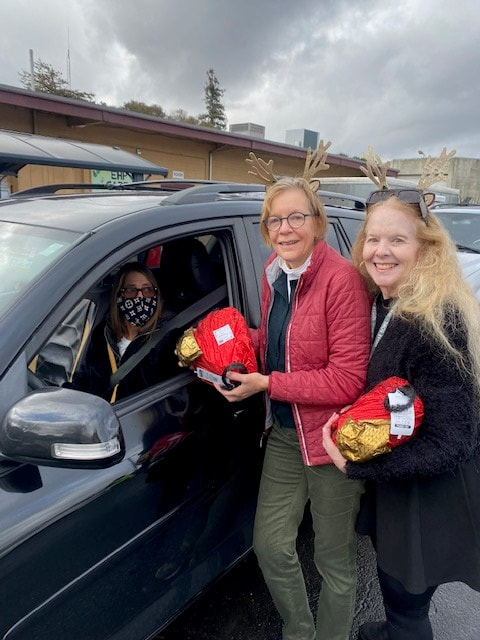

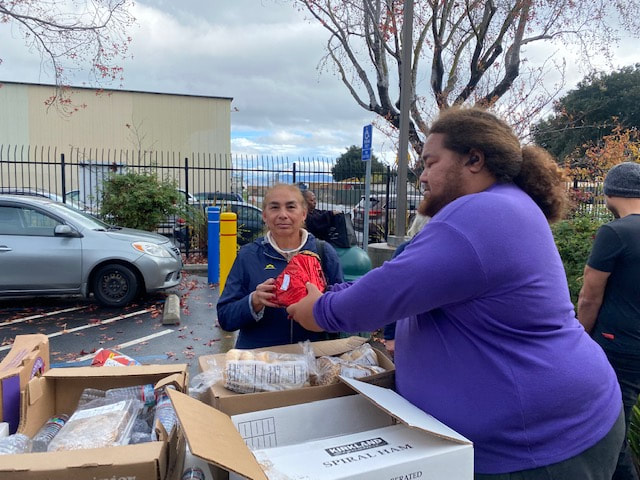
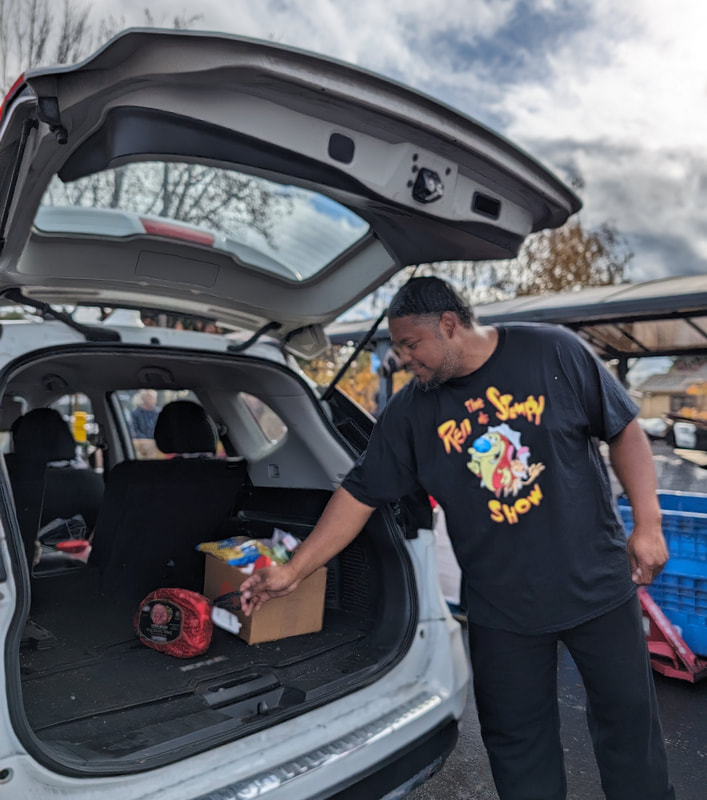
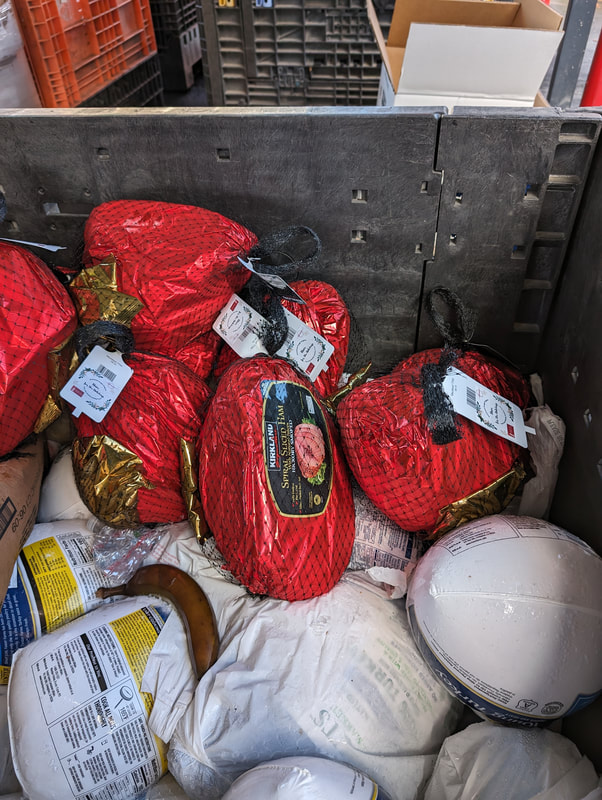
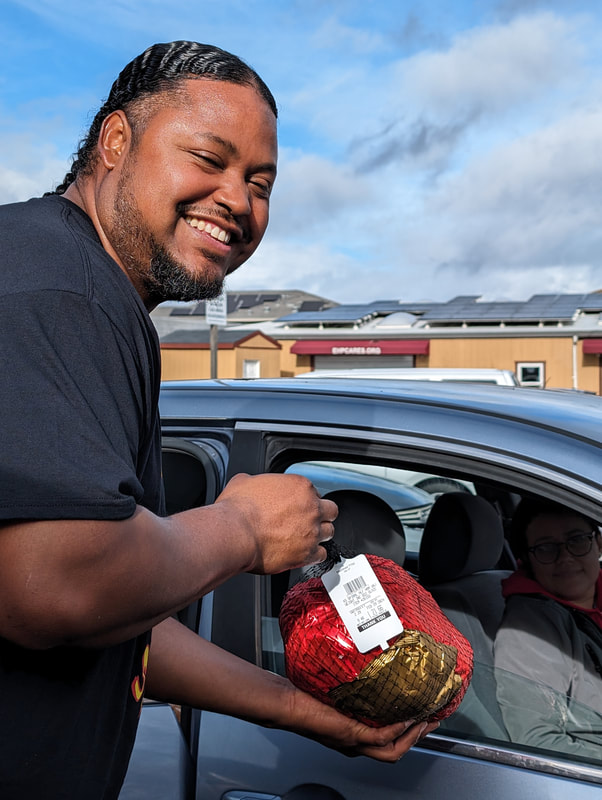
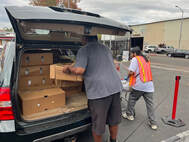
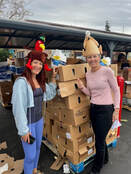
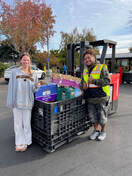
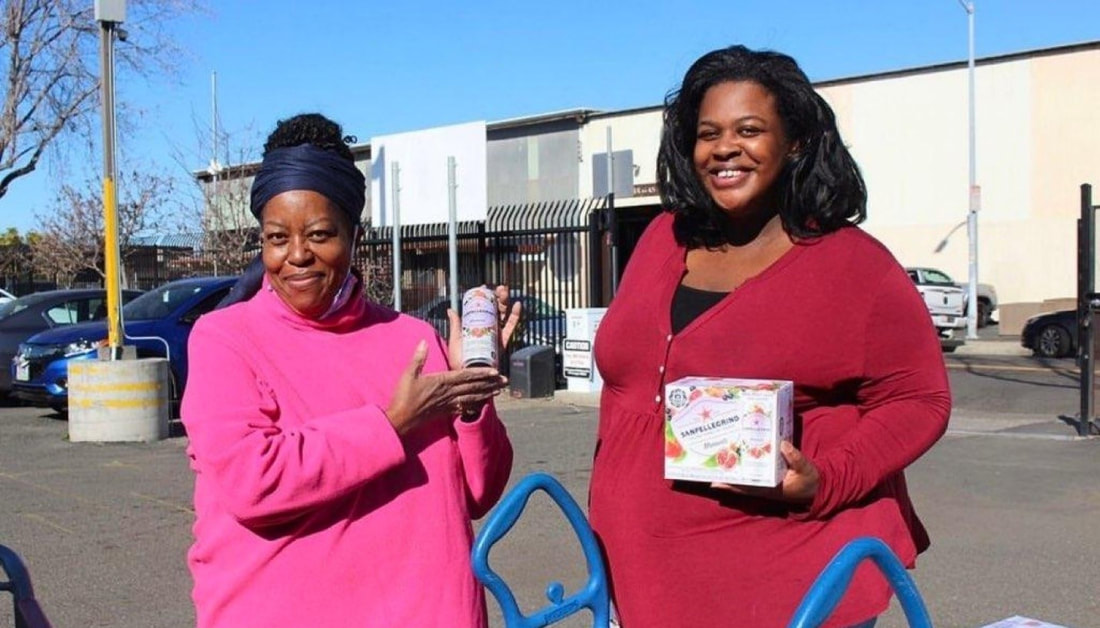
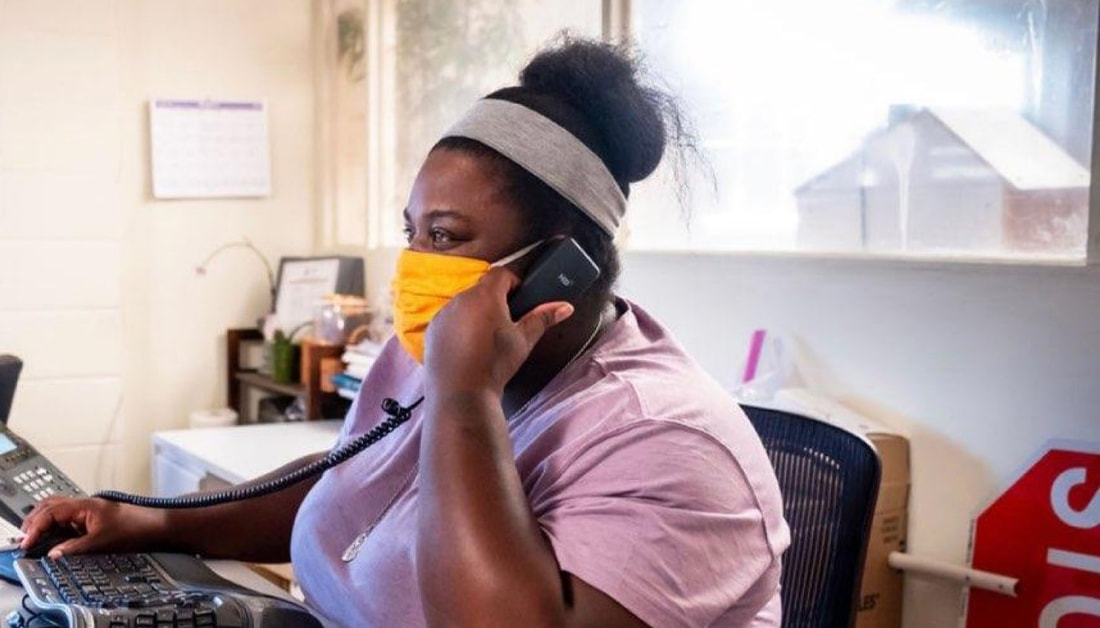

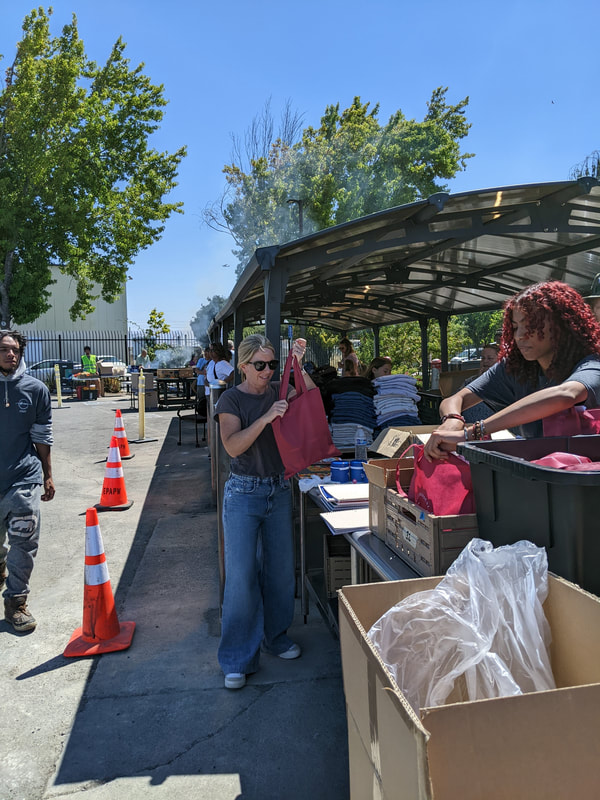
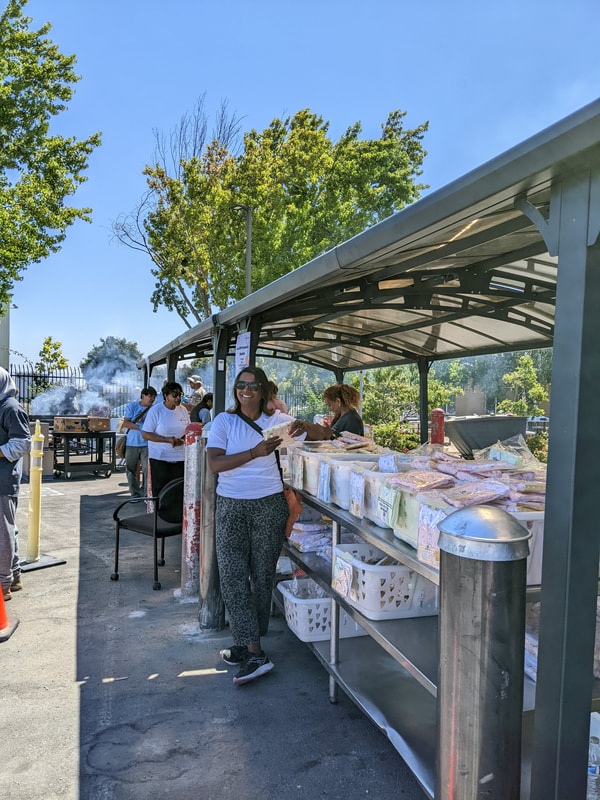
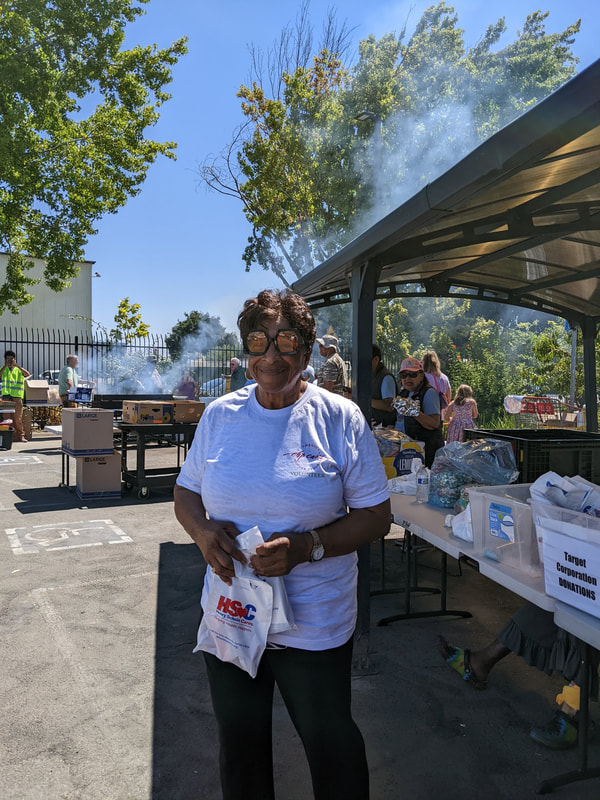
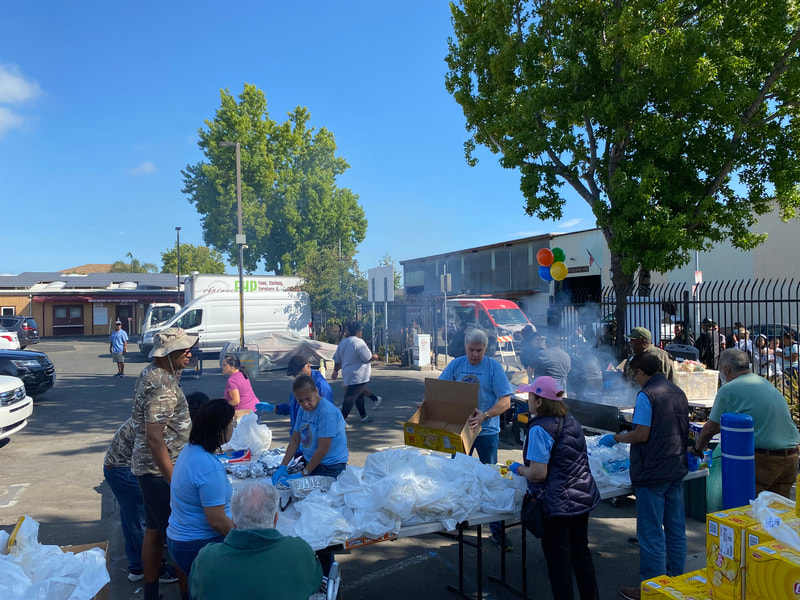
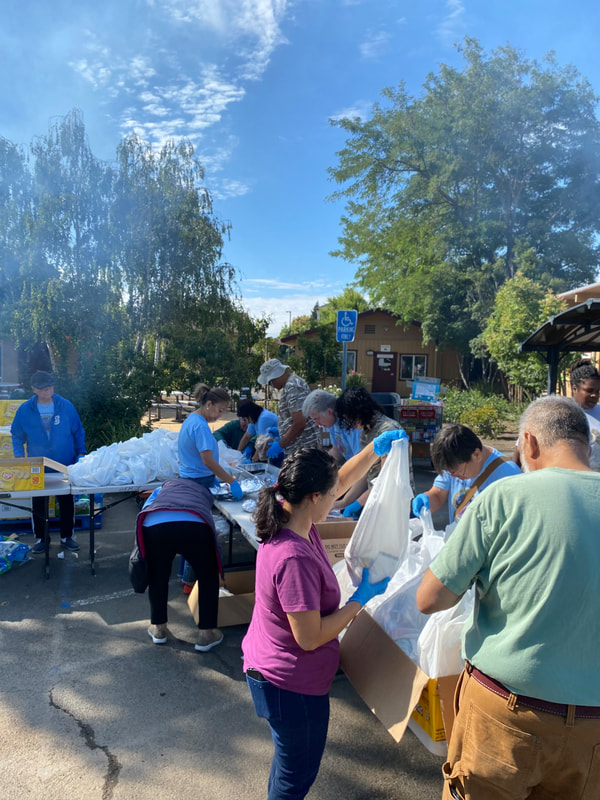
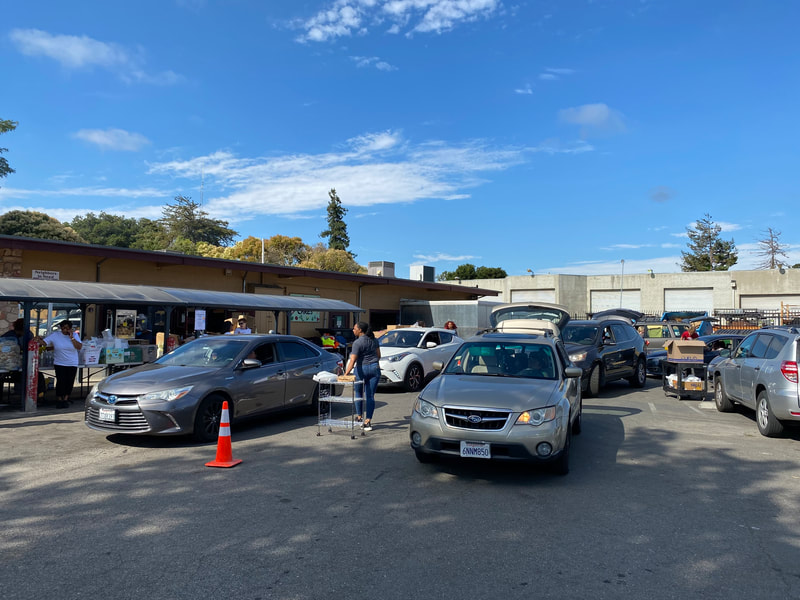
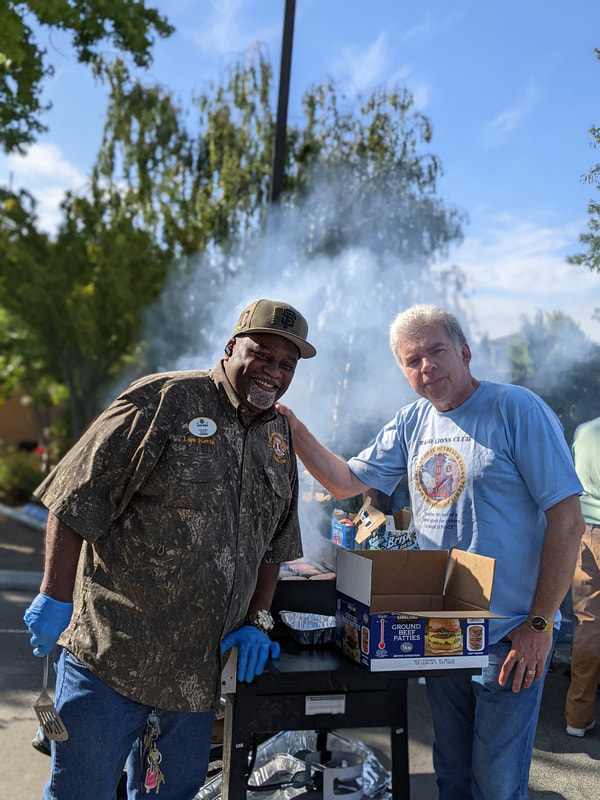
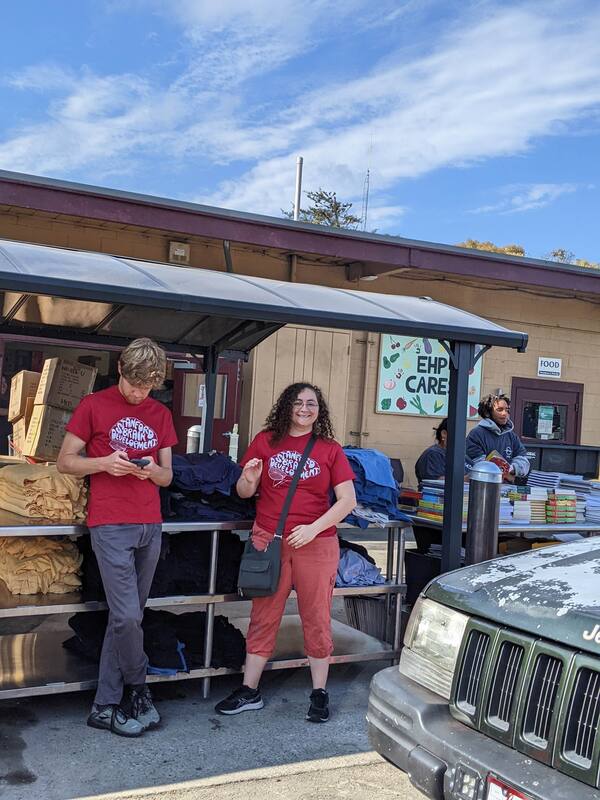
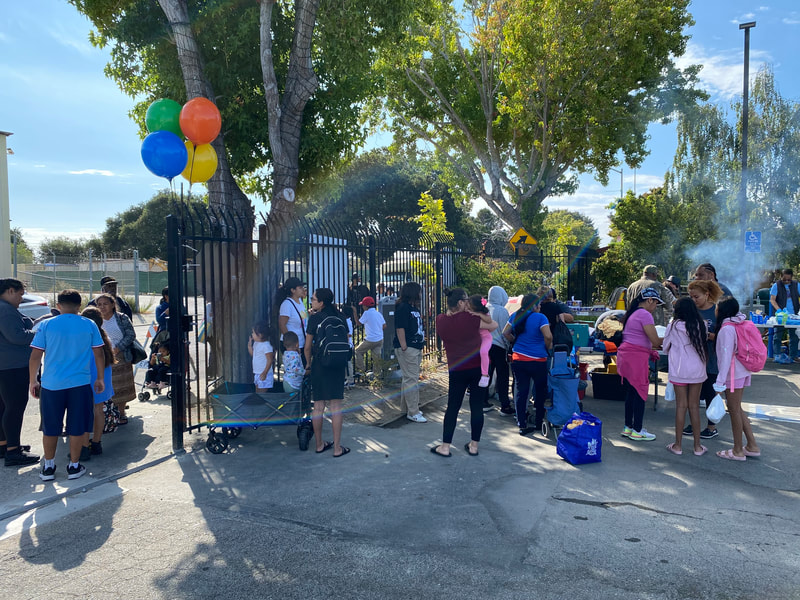
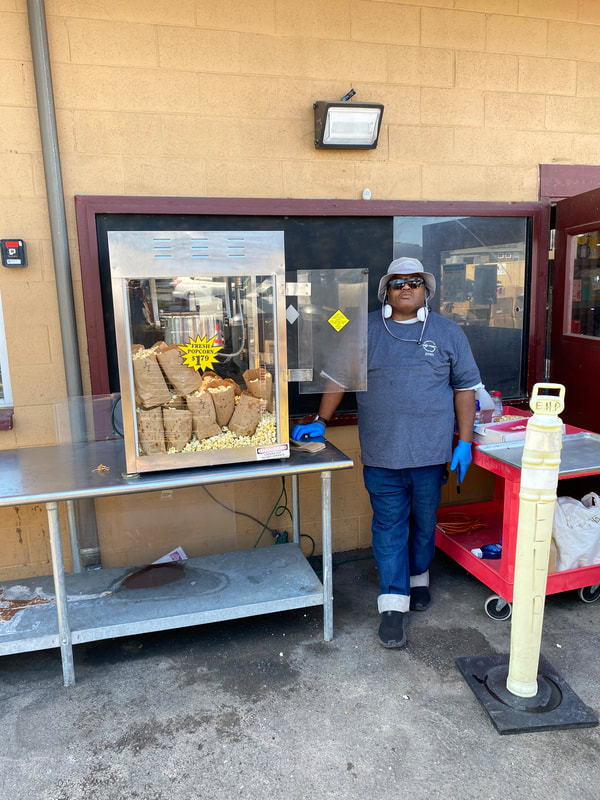
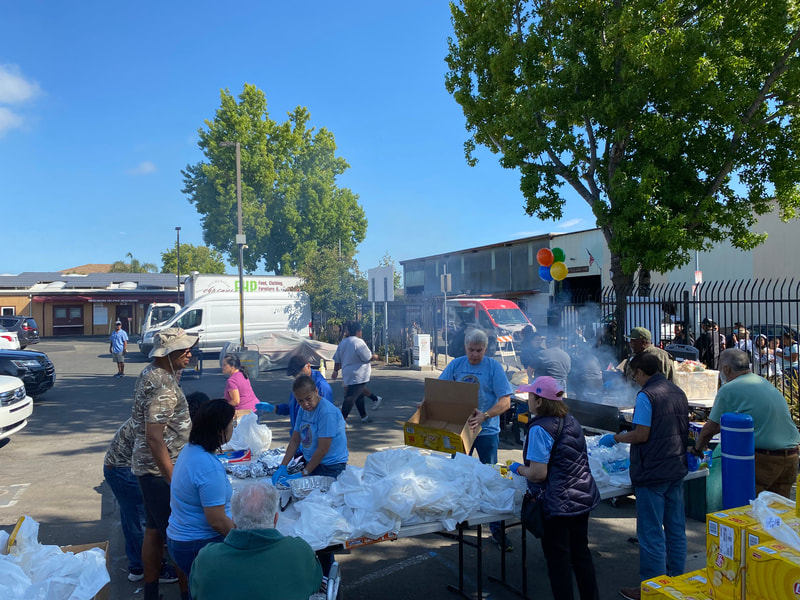
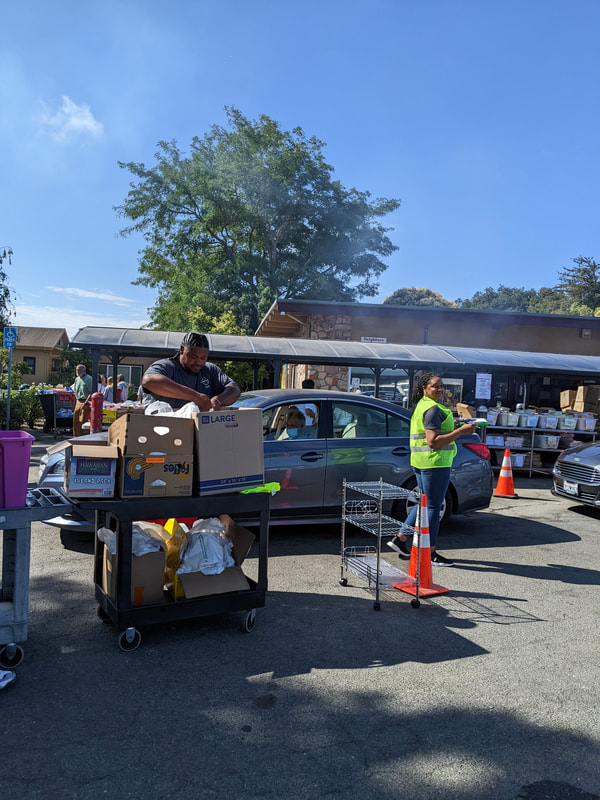
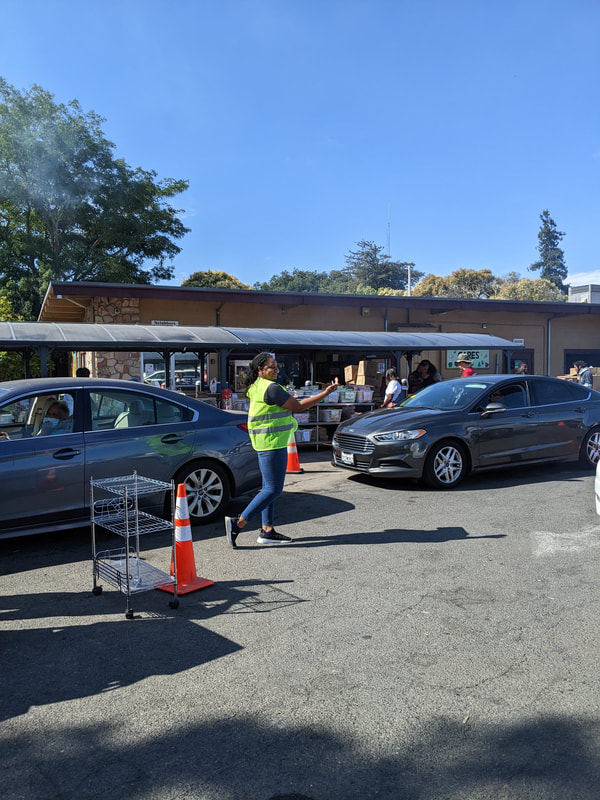
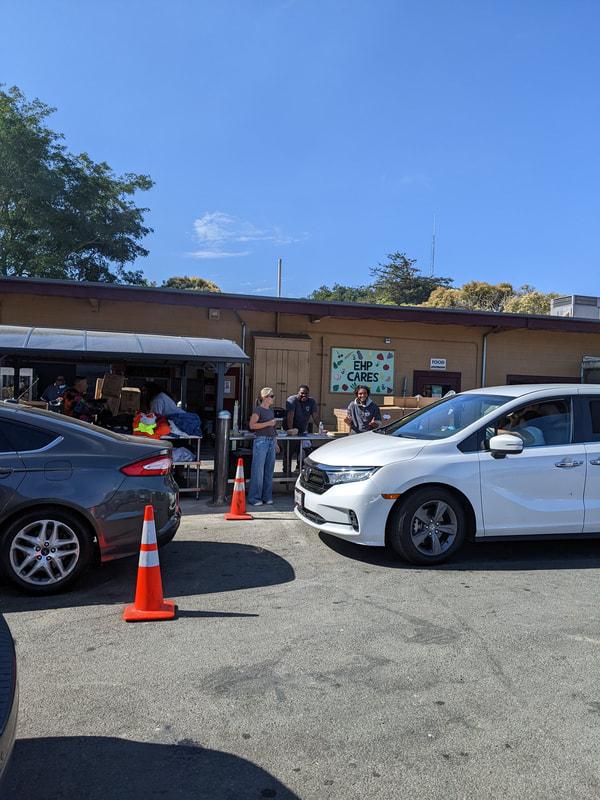
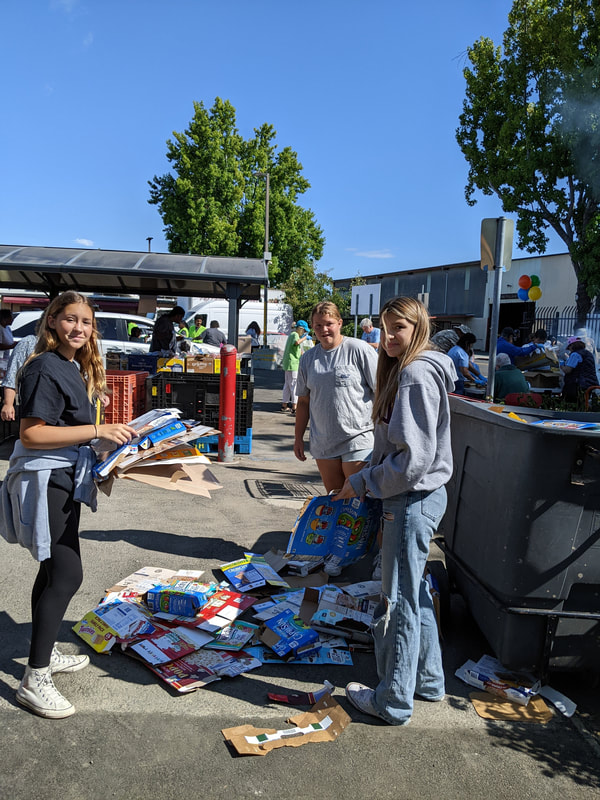
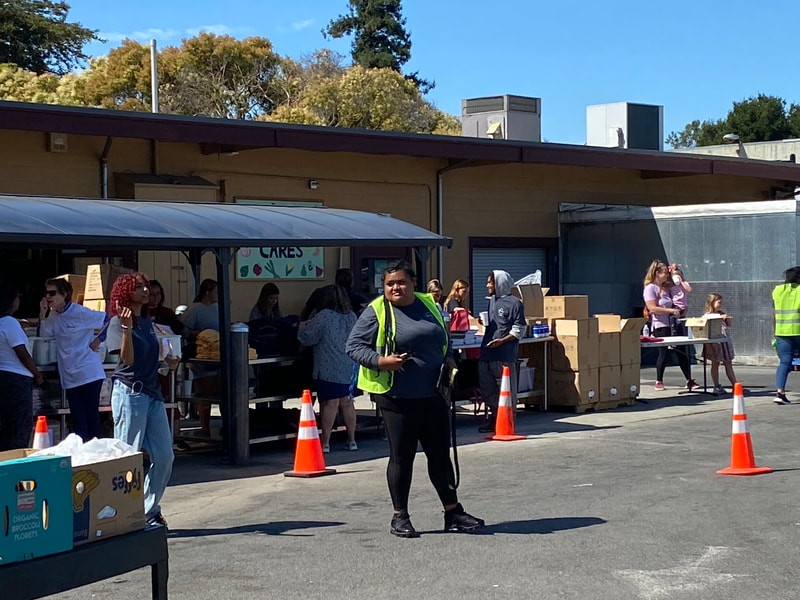
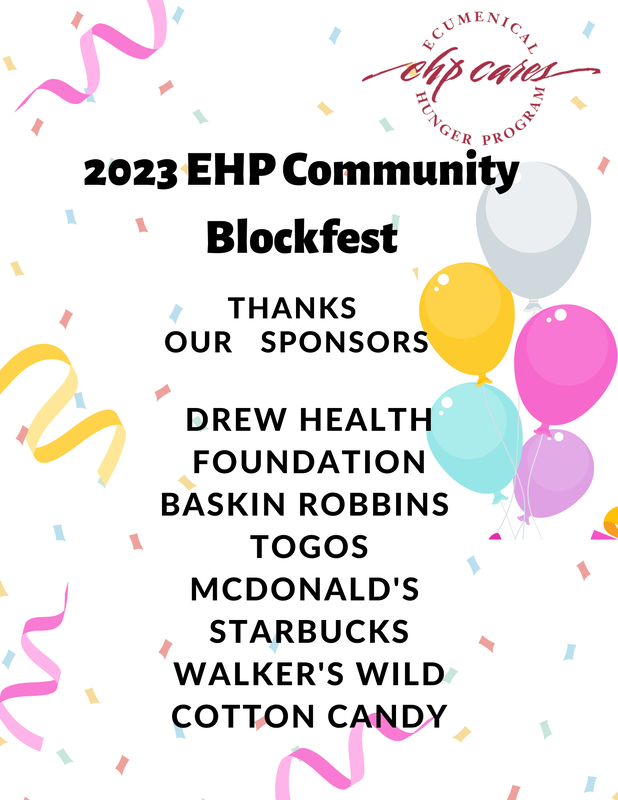
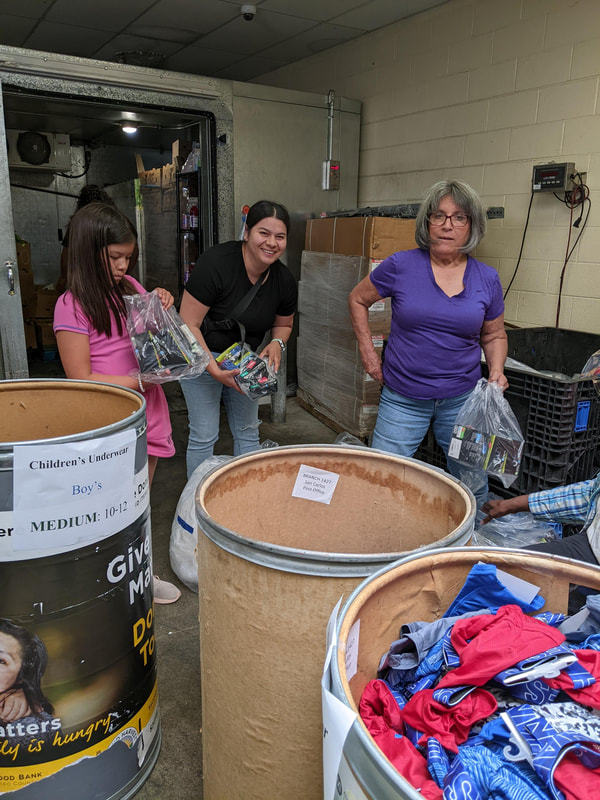
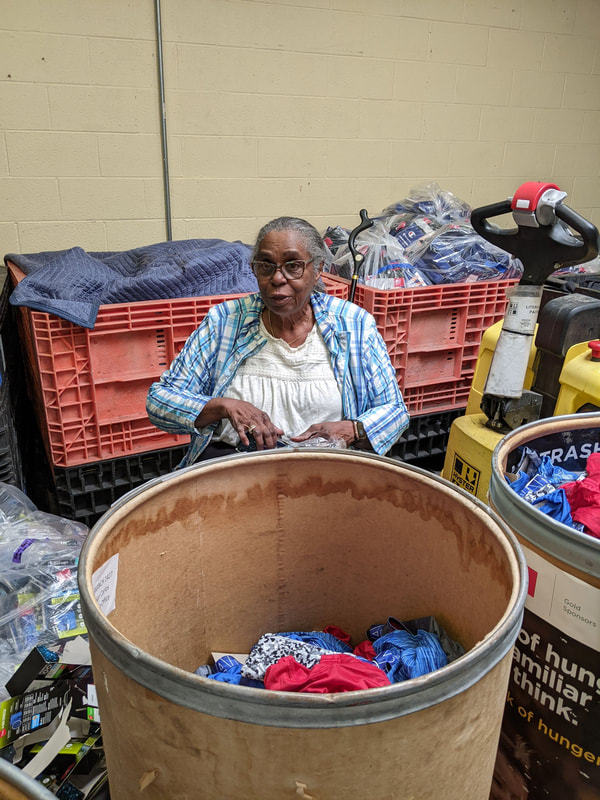
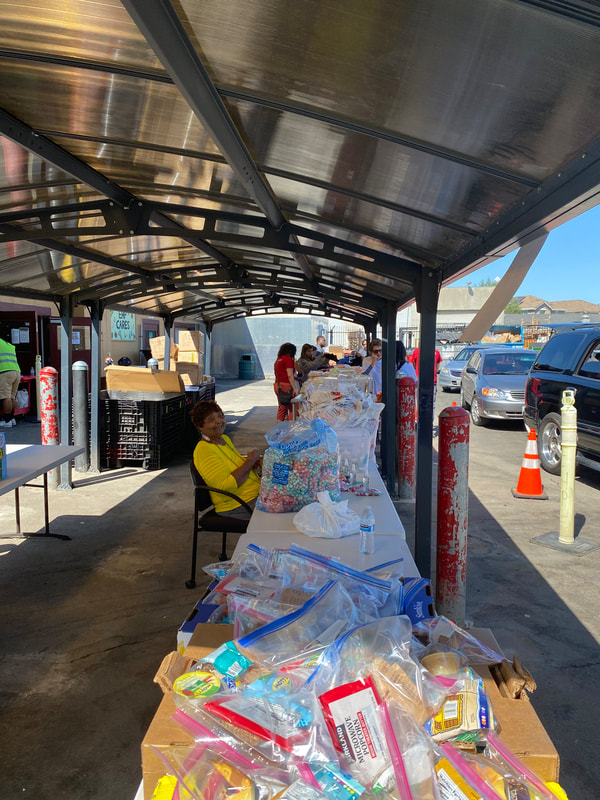
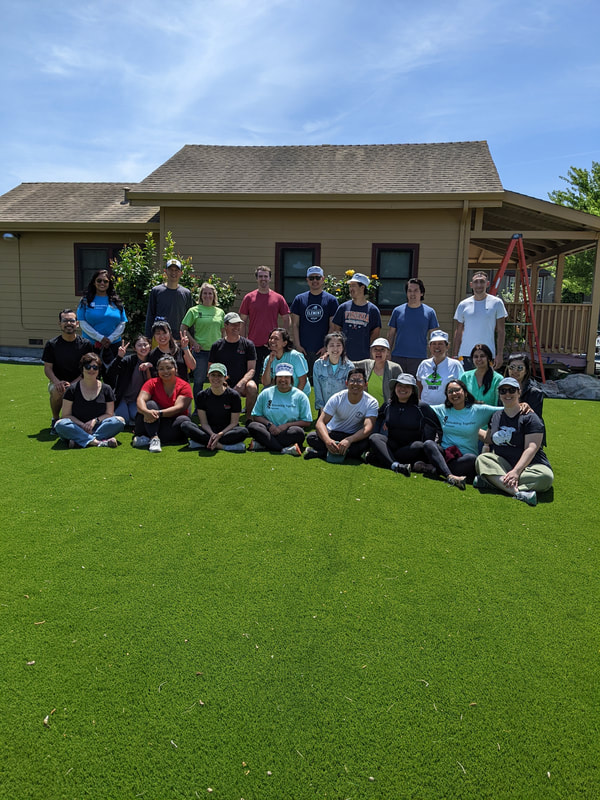
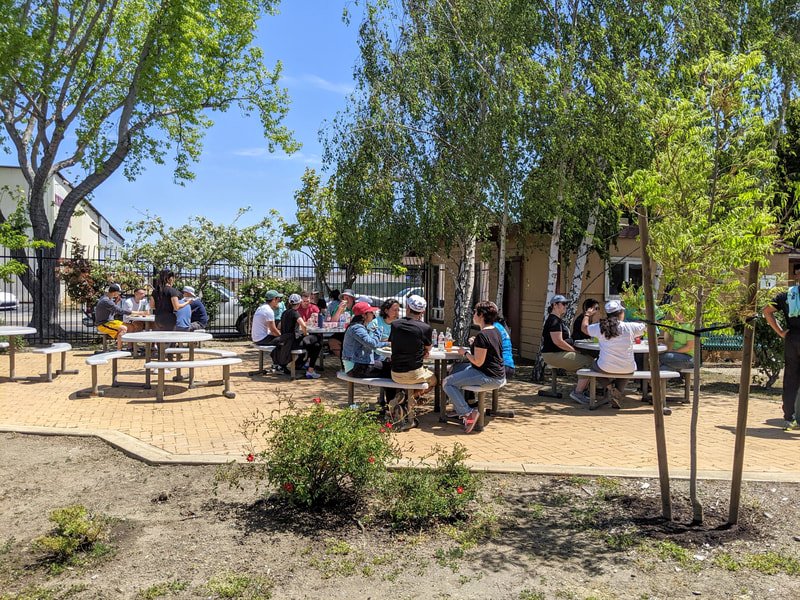

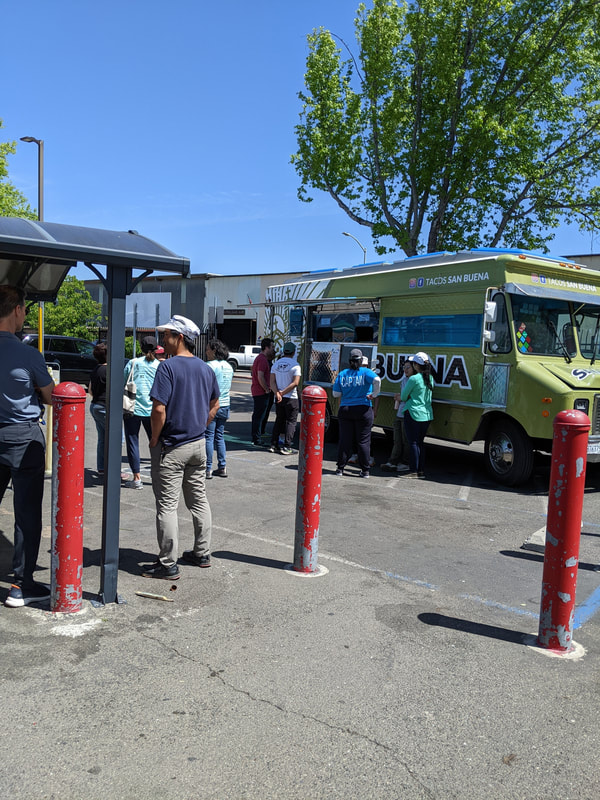
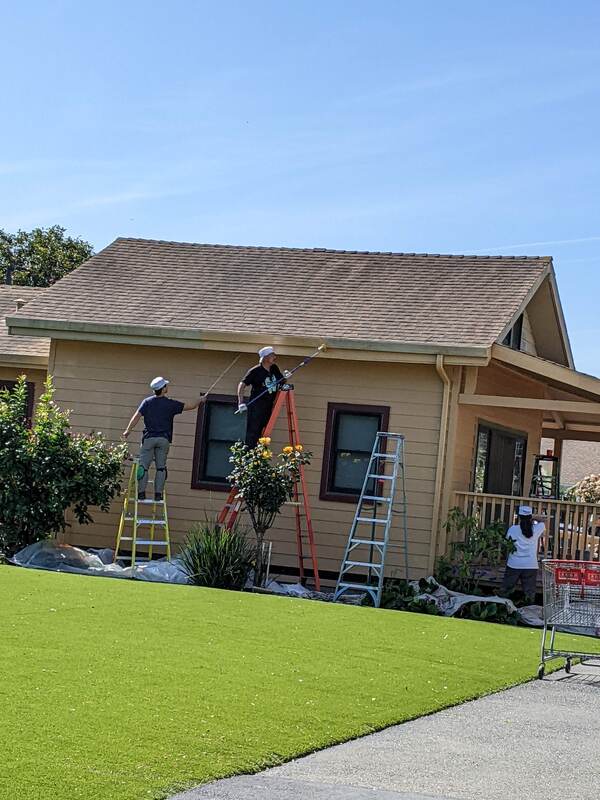
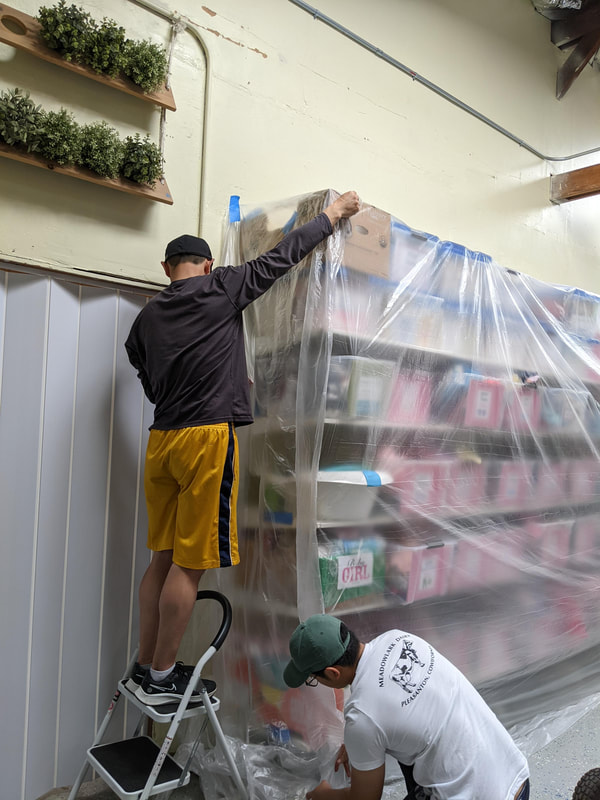
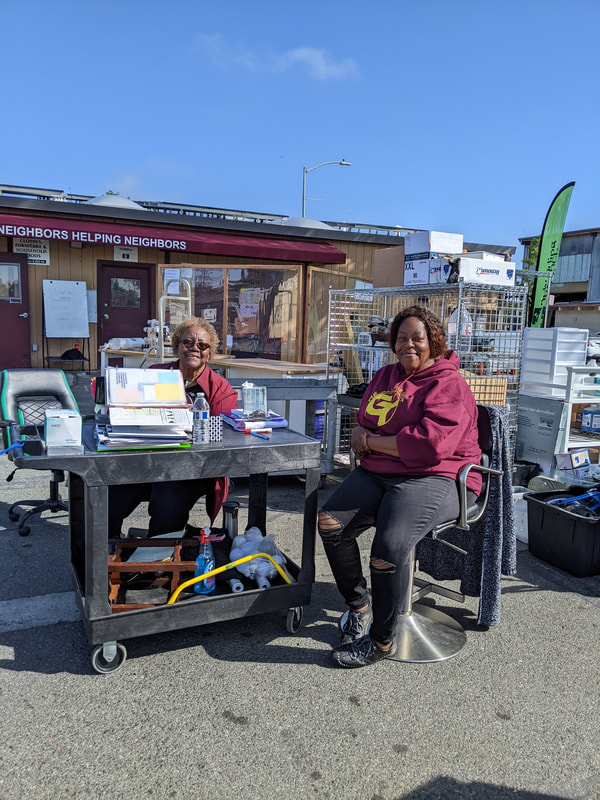
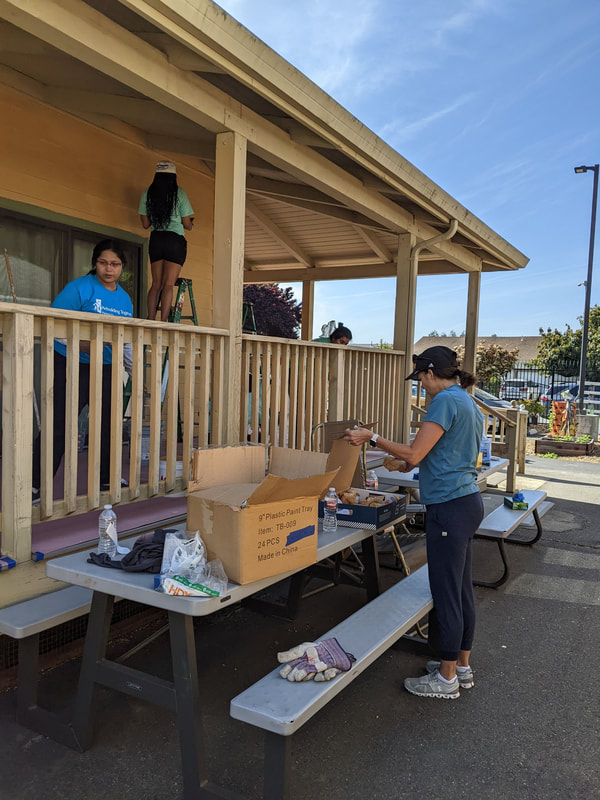
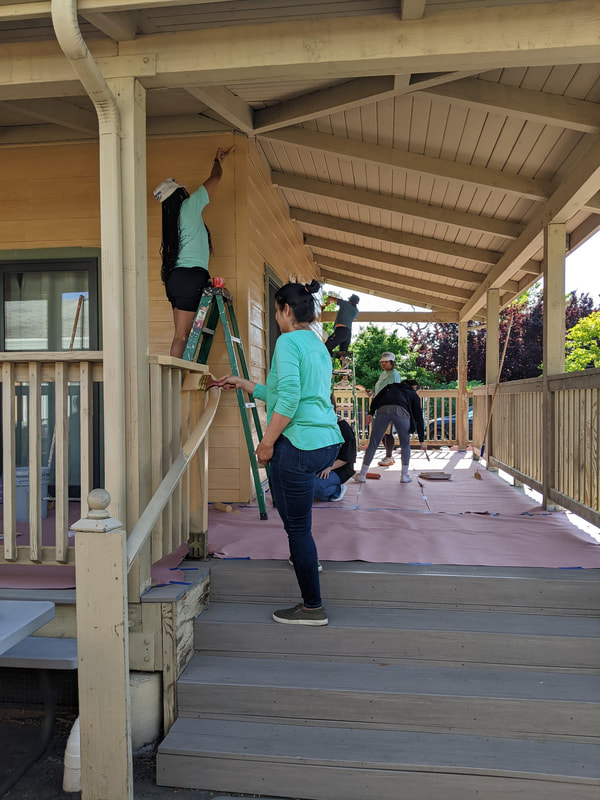
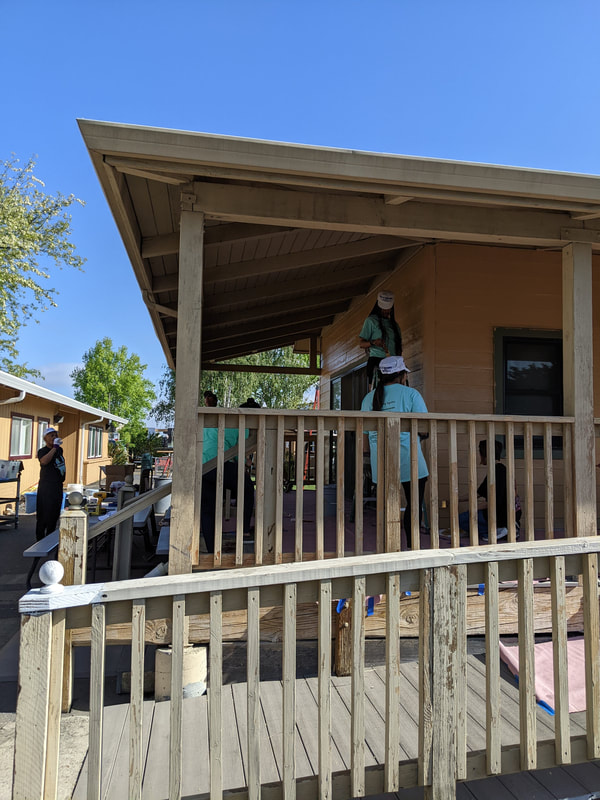
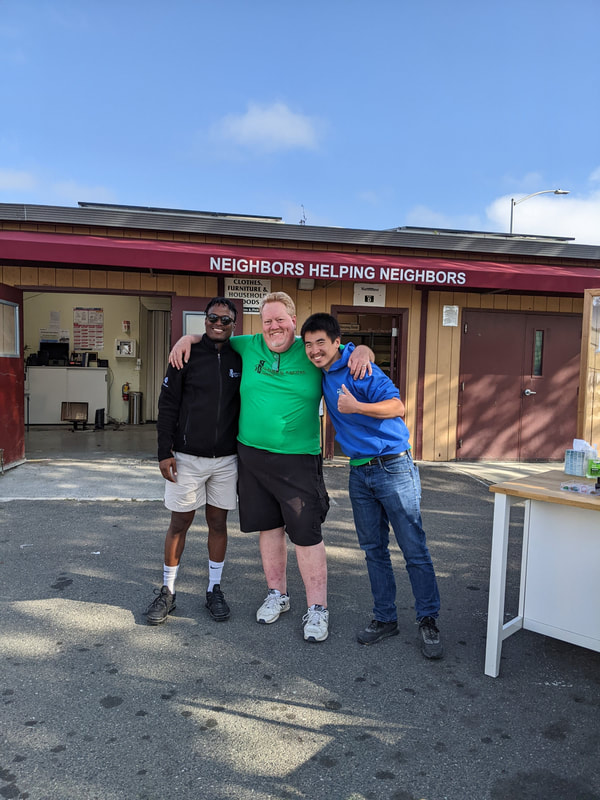

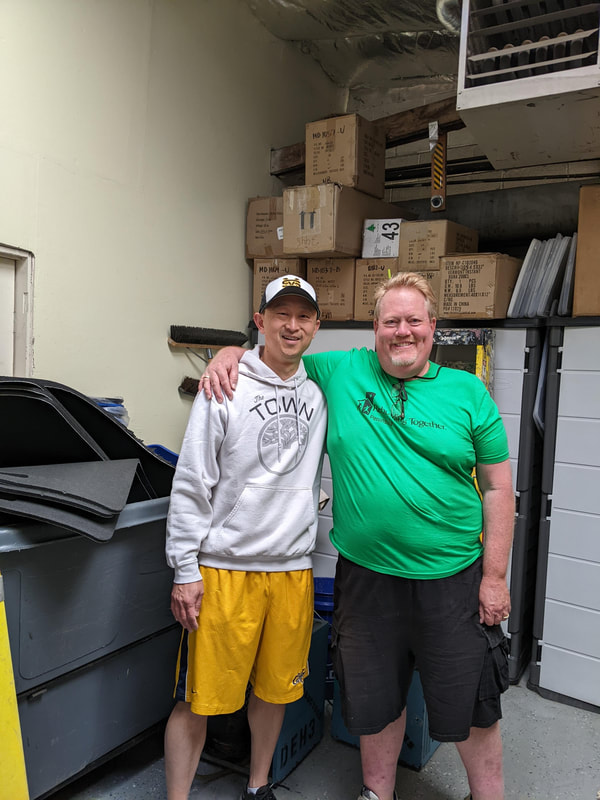
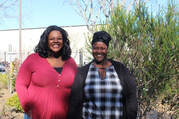

 RSS Feed
RSS Feed
